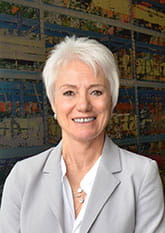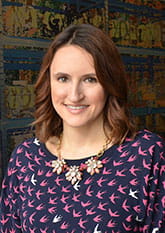Counseling Center, Office of Counseling and Health


Annette J. Molyneux

Tania Czarnecki
At no additional cost to them, undergraduate and graduate students enrolled full-time at Drexel can access confidential counseling services on a wide range of issues that support mental health. Some students want to talk about developmental issues, such as identity, academic stress or relationship concerns. Others might be dealing with depression, anxiety, sleep disruption, body-image and eating concerns, trauma and post-traumatic stress symptoms, substance abuse, grief or suicidal thoughts. Some are not sure what brings them into counseling, except that they have not been feeling like themselves, or might notice having difficulty keeping up academically or trouble sleeping. A therapist can help identify the concern and provide ways of coping and increase self-awareness.
In 2020, Drexel’s Counseling Center scheduled approximately 10,000 individual and group therapy appointments and provided more than 150 outreach presentations to the Drexel community.
The COVID-19 pandemic created and highlighted a new set of issues for students, as well as compelling the Center to provide virtual and remote services in lieu of in-person visits that had been held in the Creese Student Center. During the pandemic, issues for students have included social isolation and loneliness, as well as anxiety and grief over the loss of a co-op and other experiences, having to move home (potentially with family who do not support their identities) and losing loved ones.
The Center also is growing its list of online resources which students might consult on their own. Recognizing that some students of color have been disproportionately affected by the pandemic, which shed light on long-standing systemic health and social inequities, the Center created a Coping with Discrimination, Hate and Violence page that outlines several support initiatives and resources.
“As anyone who has struggled will know, investing in mental health and wellness is essential to reaching one’s academic and personal success,” says Annette J. Molyneux, assistant vice president of student life, Office of Counseling and Health. “However, it still is necessary for us to work to destigmatize mental health issues and to more broadly promote and expand our wellness initiatives.”
Part of Drexel’s Office of Counseling and Health, the Center supports students with personal and psychological challenges that interfere with their ability to complete their academic goals. A breadth of services – including goal-focused individual therapy, same-day appointments, outreach programs, unlimited group therapy, three-session workshops, crisis intervention and consultation – assist students with embracing and maintaining their mental health.
Teletherapy appointments are available via HIPAA-compliant Zoom video chats between 8 a.m. and 5 p.m., Monday through Friday, with an emphasis on addressing a student’s immediate concerns and a particular focus on problem-solving and symptom management. In cases where a student may not be able to connect via Zoom, telephone sessions are offered as an alternative.
Investing in mental health and wellness is essential to reaching one’s academic and personal success. However, it still is necessary for us to work to destigmatize mental health issues and to more broadly promote and expand our wellness initiatives.
“Providing telehealth has allowed us to reach a larger audience of students who might not have otherwise reached out to us,” says Tania Czarnecki, executive director of counseling. “We may continue to provide telehealth permanently, at least as a hybrid option with in-person treatment.”
Immediate crisis support is available by phone at all times. For students interested in a referral for off-campus mental health services, Randy Hoffman, a case manager and licensed social worker, provides resources or assistance with navigating insurance to find a provider.
“Students receive a customizable care plan depending on their needs,” adds Czarnecki. “Some students need brief, supportive care and at other times they or others may be in need of more involved care. We also ensure that care is culturally appropriate and responsive.”
Molyneux and Czarnecki are licensed psychologists in the Commonwealth of Pennsylvania, as are other members of the Center’s staff, which currently includes eight additional psychologists and therapists, as well as administrators and a number of doctoral and master’s student interns and externs. Molyneux also is an adjunct professor in the College of Arts and Sciences, where she teaches graduate and undergraduate psychology courses.
In a statement, student leaders at Active Minds at Drexel University, a peer-to-peer mental health advocacy and awareness group that is focused on changing the conversation and breaking the stigma around mental health issues, said: “It’s reassuring to know that we can meet anytime, in a safe and nurturing place, and have a caring member of the team walk through our struggles with us.”
For the Center to help even more students, the generosity of alumni, friends and other members of the Drexel community is essential.
“Donations to our Center would impact our work in so many ways,” adds Czarnecki. “Additional financial support will allow us to promote wellness initiatives and peer support programs, reach out to more students, further work to destigmatize mental health issues and develop essential programming, including creating resources involving art therapy, meditation and yoga.”
Support Mental Health & Wellness at DrexelLearn More
Contact Us
215.895.2612
giving@drexel.edu
Mail your gift to
Drexel University
P.O. Box 8215
Philadelphia, PA 19101-9684
Drexel University Tax ID (EIN): 23‐1352630